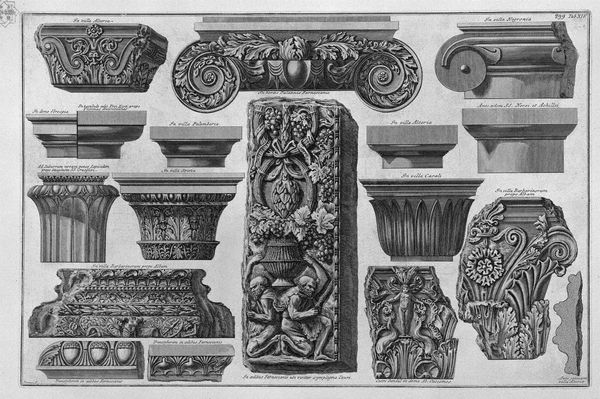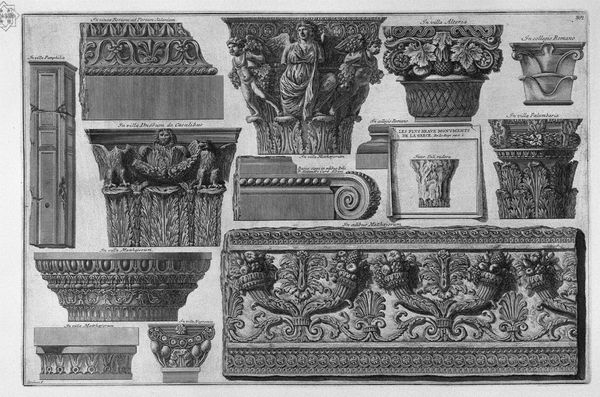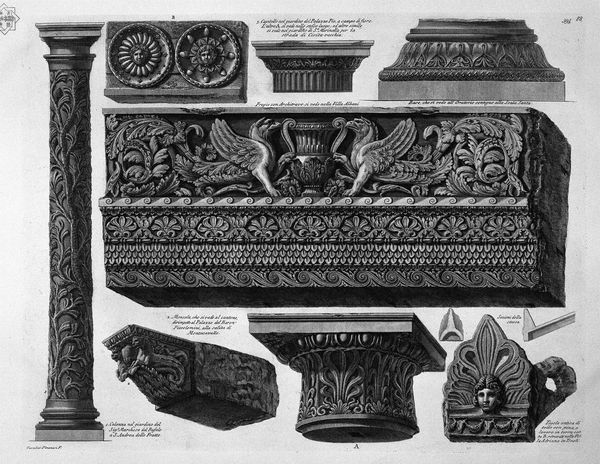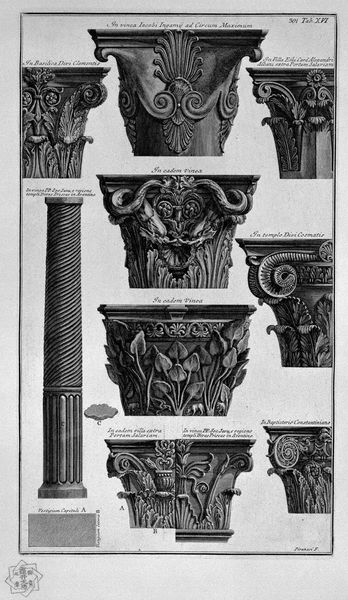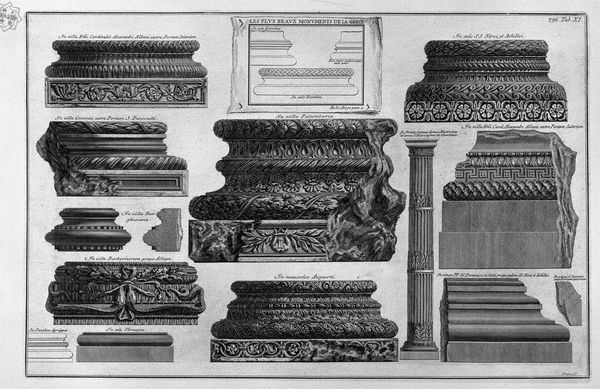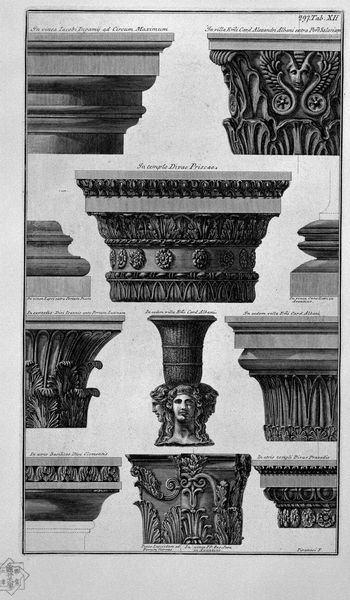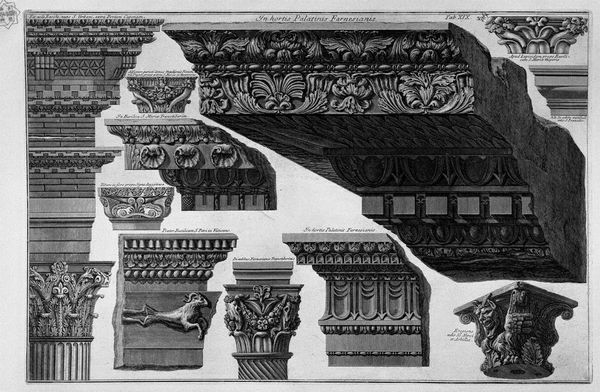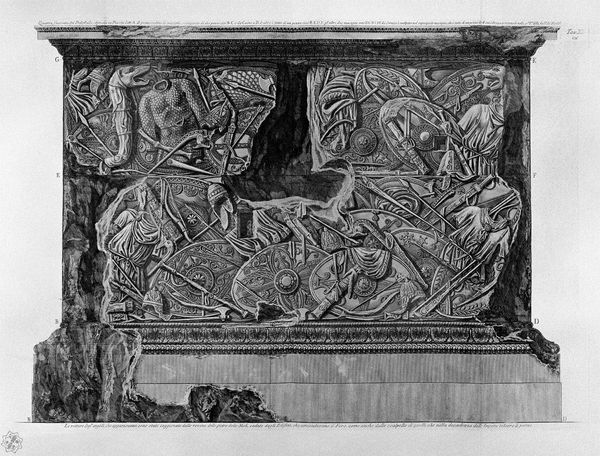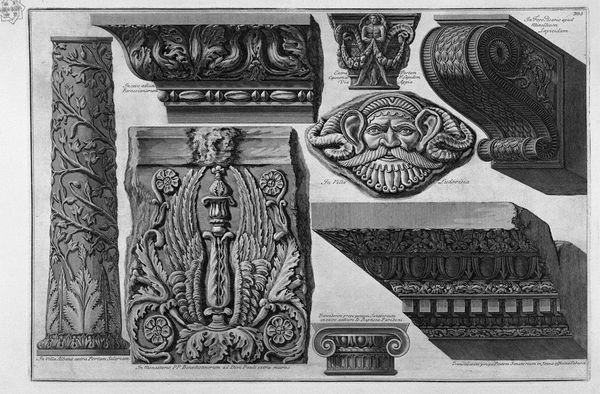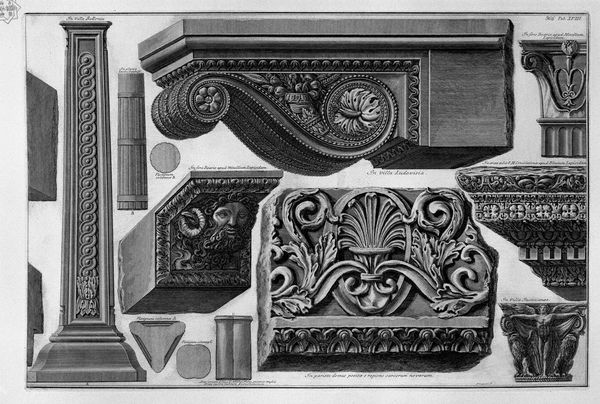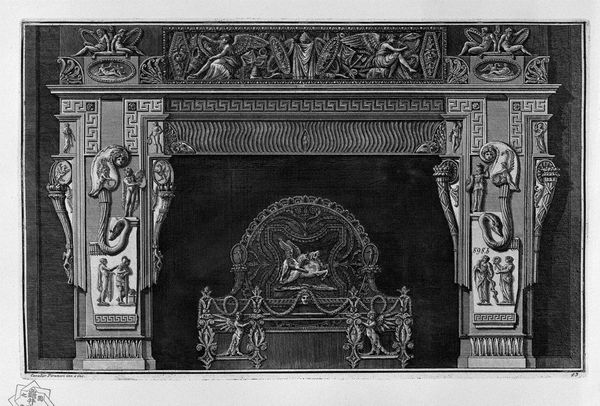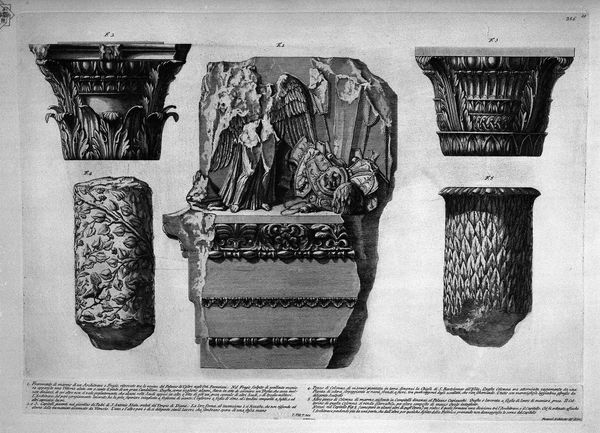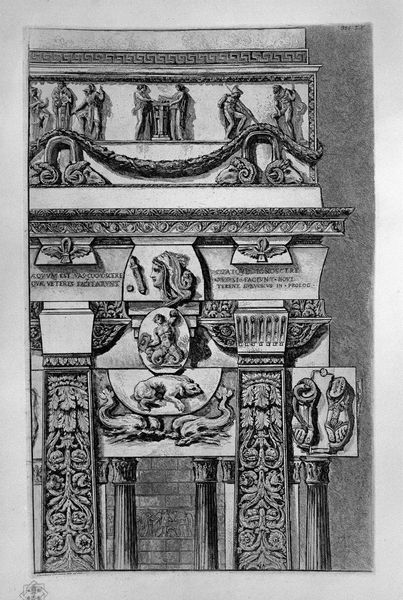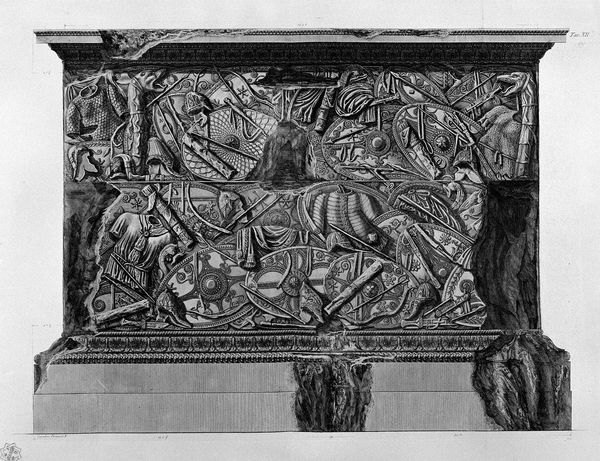
drawing, print, metal, etching, sculpture, architecture
#
drawing
#
neoclacissism
# print
#
metal
#
etching
#
sculpture
#
classical-realism
#
historic architecture
#
traditional architecture
#
unrealistic statue
#
geometric
#
framed image
#
ancient-mediterranean
#
column
#
sculpture
#
arch
#
architecture
#
statue
Copyright: Public domain
This engraving by Giovanni Battista Piranesi captures the intricate details of Roman architectural fragments found in the Farnese Gardens. Observe the recurring motifs: acanthus leaves, rams' heads, and human figures, each carrying echoes of ancient beliefs and values. Consider the acanthus leaf, a symbol of immortality and rebirth, gracing the capitals. This motif, reaching back to the Greeks, suggests a connection to the eternal, a visual echo that resonates through centuries of art. The ram's head, often associated with strength and virility, reminds us of the Roman fascination with power and dominance. These symbols are not static; their meanings evolve. Take, for instance, the image of a lion that appears in one of the friezes. Initially, it represented the power of rulers, but over time, particularly through the Christian era, it has come to represent both strength and justice. It reveals how collective memory and the subconscious influence the creation and interpretation of these enduring images, engaging our emotions on a profound level. These classical forms are continually reborn, their meanings shifting yet retaining a connection to the past.
Comments
No comments
Be the first to comment and join the conversation on the ultimate creative platform.
